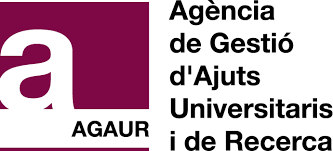Towards Efficient Hydrogen Production with New Hybrid Electrocatalysts (HYDROCAT)
Ajut per finançar projectes de recerca per la mitigació al canvi climàtic; ref. 2023CLIMA 00064.


Summary: The decarbonisation of industry has a huge role to play in addressing the climate crisis by drastically reducing greenhouse gas emissions. The urgently needed transition away from fossil fuels will be ultimately based on the efficient production of hydrogen with renewable energy (i.e. green hydrogen). Industrial scale green hydrogen production will primarily come from electrochemical water splitting (i.e. 2H₂O → 2H₂ + O₂) using electrolysers and suitable water sources However, current electrolysers, have high energy costs and rely on expensive scarce materials. HYDROCAT will develop a new class of hybrid organic-inorganic electrocatalysts based on self-assembled monolayers (SAMs) of electroactive organic molecules. These new catalysts will be based on earth abundant (and therefore less costly) materials that promise to split water using less energy than standard approaches. Our approach combines the complementary international expertise and experience of three Catalan institutions (UB: modelling/design of catalysts under working conditions, ICMAB: SAMs of electroactive molecules, ICN2: experimental electrocatalysis) to design, synthesise and test a new SAM-based electrocatalyst concept.
The Team
ICMAB-CSIC
- Prof. Marta Mas-Torrent (Coordinator)
- Dr. Núria Crivillers
- Dr. Samar Gharbi
- Marco Zechner
UB
- Prof. Stefan T. Bromley (PI)
- Dr. Jordi Ribas Ariño
- Prof. Konstantin Neyman
- Dr. Albert Bruix Fusté
- Dr. Isaac Alcón Rovira
- Kilian Jutglar Lozano
- Andreu Avelli de Donato Perez
ICN2
- Prof. María Escudero (PI)
- Dr. Sanchayita Mukhopadhyay
News
-
May 2024
Kick off meeting of Hydrocat at ICMAB-CSIC.
-
October 2024
Sanchayita, Isaac and Marco start working for Hydrocat.
-
January 2025
Progress Meeting at ICN2 and lab visit.
-
May-June 2025
Samar delivers an oral presentation at EMRS-Strasbourg about Hydrocat results. Marco also presents his results at the “Bienal of the Spanish Royal Society of Chemistry” at San Sebastián.


